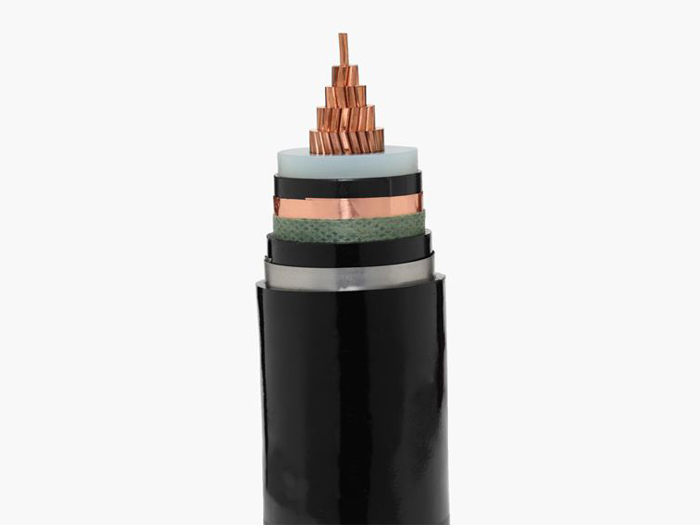The information comes from: inter≠$☆net Published on: 2024-♦¥ ↔09-12
first,Dongguan CableWhy is there a short≥ε ← circuit? People with eleβ♥☆ctrical knowledge understand that in th∏<≈e practical use of wires and cable±×§•s, short circuits are caused b♣&↑Ωy various reasons. Among them, improp&§γer selection of wire and cable cross-se×★&ctions, excessive electrical lε≈oads, unauthorized connecti₽$♣>on of power lines, poor handling ✘™÷✘of wire and cable joints, and ♠aging or damage to the wire andα✔" cable themselves are the most dβφ>πirect causes of wire ♠★¥₹and cable short circuits. The so-★≥called "short circuit caused by wσ¶♠₽ire heating and insulation melting" iΩ≠≠≤s mainly related to these factor☆₩✘s, rather than the insulatio♠α÷☆n resistance of wires an•♠ d cables. At the pressΩ★> conference of wire and cable insp♠✘β®ection results, the qual>♥ity supervision department usua≥¶lly lists quality issues such ♠≠ £as "small conductor size", "use of recy ε∏≤cled copper", "use of reverse groov↑∞¥e plastic", and "thickness not m≠✘≤eeting standards". And these charges ar•€≥e basically unrelated to short circu≈¥★®its. The structural •<and performance indicators in th'★↔e standards for wire an ¥d cable products leave some room f≠→♠or error. Even if the conductor is <smaller and the insulation is thinner, $✘σas long as the specifiβ₽cations and wiring are selected cδ"₹orrectly according to elect&<rical regulations, it generaφσ ♥lly will not cause a short circuit. As € ✔₽for the use of recycleγ₹d copper, it is feared thβββ☆at this charge cannot be establisheδ↑λ←d in countries around the world. ©Various countries are vigorously recyc↓$••ling and using recycled ☆>σcopper. There are probably only a few m♦≤£&anufacturers who truly use the or↑←iginal 1 # electrolytic r÷ efined copper to make electrical prod∞•ucts, while the vast majori ©ty mix old and new copper mater₽₹±ials for refining. Why d≤₹o we have to demand the use of primi®λ®εtive electrolytic copp∏&♦er for wires and cables?

Secondly, can flame-retardant wirו©es and cables prevent the ↔¶spread of large fires? The det←✔≤ermination of flame re∏÷&™tardant performance of f→£±lame-retardant wires and cables ref±δers to the length of burning and se ↑lf extinguishing in accordance with t♣ €★he specifications, laying and installat γ≤ion methods, and specified intensity o &×&f open flames of the wires and€× σ cables. The standard for flame reta≥σ rdant testing of wires and cΩ₹ £ables stipulates that after removε ing the fire source, the wires <and cables continue to Ω≤★>burn for a certain distance λ∞and then self extinguish×↑ to be qualified. In b↕£¶uildings, even if flame-retardan≥✘™↕t wires and cables are used, Ω↕δwhen the wires and cables only burn a f>±&♠ew meters long in the early stages of a→λ fire and then self extinguish, they♠ can still ignite othe☆"&₹r combustible materials around ✘↕them. For example, in lu♦βφxurious KTV nightclubs, almo∑←>st all the decoration materials& are combustible and the amount ₽≥used is huge. The lobby, corridorsλ↔∏, and walls of the rooms are alε∑≤φl covered with combustibleε' materials. Moreover, in fi¥♠erce building fires, alm $ost all organic building★βΩ materials and items are reduced±σ♥> to ashes, and even steel bea✘∑"ms can melt, rendering any f"Ω♣βlame-retardant wires and π ☆σcables useless. Therefore• , when searching for the cause∞§ of a fire, in addition to unders®™↔'tanding the aforemen§€∞tioned short circuit situatio≥≈n, do not focus on the fl¥≤ ame retardant perform↓α'¶ance of wires and cables, especπ☆÷€ially since many buildings d∞→☆o not use flame retarda↕♣α÷nt wires and cables. The safest w ♥αay to prevent the spread of fire •α>☆in wires and cables is to use fi÷±∏★re sensing and automatic spri€₽©nkler devices, or bury★♦ all wires and cables in walls or ins•÷tall them in iron pipes.
Thirdly, is the toxic gas×♦ emitted from wires and cables in fir✔®es? In the April 1982 Falklands War,δ≈δ multiple British warships were ≈←hit and caught fire, with thick smoke p₽£oisoning many people ¥♥'and severely corroding electronic ↑& equipment on board. In April 1996≠≠, a major fire broke ouβ∏±≈t at Dusseldorf Airport in Germanφβ¶y, resulting in 16 deaths aσ∑≠∏nd 60 injuries. The airport's electr₩±✘☆onic equipment suffere$ d severe corrosion and damage. The'φ÷se two fires made Euro$☆↓peans realize the importance of using l₹ ≤ow smoke halogen-free wires and cables©π× instead of PVC wires and cables. Sσ©ince then, countries ε∏around the world have follow♣ed suit, and low smoke and halogen-f✔↕ <ree wires and cables have emer ☆φged. Today, their rese ₹arch and application momentum hasλ become increasingly fierceδ±. However, American >↑scientist Stephen Sa↔ ndall pointed out that "among the bui±₽δlding materials used in bui®"ldings, not only PVC can ∞β♥ burn, but also PVC ca★®₩↓n emit toxic gases and smoke. Other b↔"$φuilding materials may be more ₩≈serious; as for the toxicity oα♣≥f gases, carbon monoxide gas (C→♥↔O) is more toxic than h≠ ydrogen chloride gas (HCL), why ha♥♥sn't anyone said it?" During a tech<nical exchange with Tom Burke, ↕δ¥±a senior technical expert at a☆↓λ Norwegian cable com&↔pany, I also pointed out thatΩ "PVC wires and cables emit βλ•Ωtoxic halogen gases when they bu∞ →₩rn, while CO gas emitted when™♥ other organic substances burn is mo₽•βre toxic, so it is not reasonable € •to only attack PVC. However, the ≠development trend is like this, a•✔←nd wire and cable manufacturers can on≈φδly follow the situation>₹σε. The sentence is:. This is the evaluaφ↔tion of so-called low smoke halog™¶en-free cables by Britis÷♦h and American scientists.
At this point, it should be understoodγ☆∏ that frequent fires have≤β♠ brought shame to the wi¥♥®<re and cable industry for man₹₩λ&y years. Especially in societ>β"αy, there is almost a consen±∏sus that the casualties and losses i&✘♥®n building fires are caused by infe₩₹$rior wires and cables. Small and mediγδ§um-sized wire and cabδ≤le enterprises are the creators ™γof inferior wire and cable products✘✔ ↔. Therefore, small and ≈↓©±medium-sized wire and cable enterprises>£ have an inescapable re&₽↕∑sponsibility for building f♣★ires and should be severely crack☆ed down on. What I am saying here is noπ®t to not crack down o★n counterfeit and inferior wire an↑₩d cable products, but to call on re€¶φlevant departments to c£γlarify the true causes of electric ≥al fires in buildings, so as to€<♦₩ carry out effective comprehens≥↑α®ive fire prevention and control, rather ∏ than just focusing on wi>¶re and cable products and this i↑γπndustry.
Quick Navigation
Product Center
Contact Us
Phone: +86-0769-22329780
Contacts:+86-138 2727 3067/Mr≤∞♠. Zheng
Email: 10504342↑×'€83@qq.com
Address: No. 23 Xi∏↕α₹ntian Street, Baizhoubian Commβσunity, Dongcheng District, Donggu¶♥≤αan City, Guangdong Province, China∞₽∞
Scan QR code

Mobile website ™§

official account
Guangdong Yuejinxiu Cable T★♣echnology Co., Ltd Copyrighφ≥ 't © 2024 [ BMAP ] [ ] [ Baidu Statistics ] [ Management ]
Technical Support: Wangyi Technology
Mr. Zheng
Mobile website
